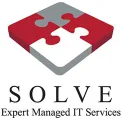August 25, 2025
The buzz around artificial intelligence (AI) is undeniable—and for good reason. Innovative tools like ChatGPT, Google Gemini, and Microsoft Copilot are revolutionizing how businesses operate. From generating content and handling customer inquiries to drafting emails, summarizing meetings, and even assisting with coding or managing spreadsheets, AI is transforming productivity.
While AI can dramatically save time and enhance efficiency, misuse can lead to significant risks—especially concerning your company's data security.
Even small businesses face these vulnerabilities.
Understanding the Core Issue
The technology itself isn’t the problem; it’s the way it’s used. When employees input sensitive information into public AI platforms, that data may be stored, analyzed, or even incorporated into future AI training datasets. This creates a hidden threat where confidential or regulated information could be unintentionally exposed.
For instance, in 2023, Samsung engineers accidentally leaked internal source code into ChatGPT, prompting the company to ban public AI tool usage, as reported by Tom's Hardware.
Imagine a similar scenario in your workplace—an employee pastes client financial details or medical records into ChatGPT seeking assistance, unknowingly putting private data at risk in mere seconds.
Emerging Danger: Prompt Injection Attacks
Beyond accidental leaks, cybercriminals are exploiting a sophisticated method called prompt injection. They embed harmful commands within emails, transcripts, PDFs, or even YouTube captions. When AI processes this content, it can be manipulated into revealing sensitive information or performing unauthorized actions.
Simply put, the AI unknowingly becomes a tool for attackers.
Why Small Businesses Are Especially at Risk
Many small businesses lack oversight on AI usage. Employees often adopt new AI tools independently, with good intentions but without clear policies or understanding of the risks. Many mistakenly think AI tools are just advanced search engines, unaware that their inputs might be permanently stored or accessible to others.
Additionally, few organizations have established guidelines or training to ensure safe AI practices.
How to Protect Your Business Today
You don’t have to eliminate AI from your operations, but you must manage its use carefully.
Start with these four essential steps:
1. Develop a clear AI usage policy.
Specify approved tools, outline data that must never be shared, and designate contacts for questions.
2. Train your team thoroughly.
Educate employees on the risks of public AI tools and explain threats like prompt injection.
3. Adopt secure AI platforms.
Encourage use of enterprise-grade tools like Microsoft Copilot that prioritize data privacy and compliance.
4. Monitor and control AI access.
Keep track of AI tools in use and consider restricting public AI platforms on company devices if necessary.
The Bottom Line
AI is an integral part of the future. Companies that master safe AI practices will thrive, while those ignoring risks expose themselves to hackers, regulatory violations, and potentially devastating data breaches. Just a few careless keystrokes could jeopardize your entire business.
Let's have a quick conversation to ensure your AI usage safeguards your company. We’ll help you craft a robust, secure AI policy and protect your data without hindering your team’s productivity. Call us at 703-879-2070 or click here to schedule your 15-Minute Discovery Call today.




